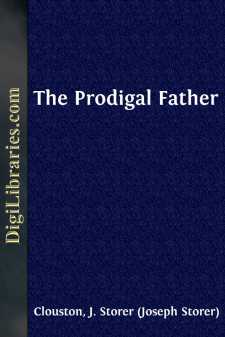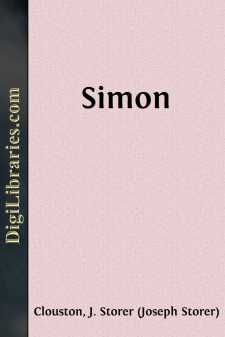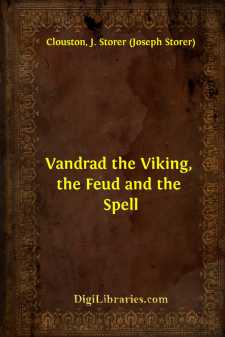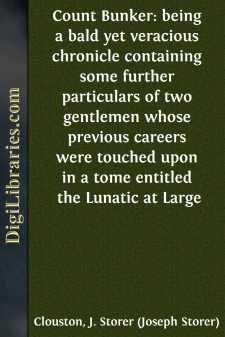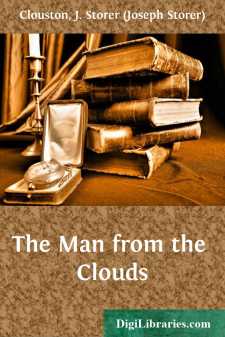Categories
- Antiques & Collectibles 13
- Architecture 36
- Art 48
- Bibles 22
- Biography & Autobiography 813
- Body, Mind & Spirit 142
- Business & Economics 28
- Children's Books 14
- Children's Fiction 11
- Computers 4
- Cooking 94
- Crafts & Hobbies 4
- Drama 346
- Education 46
- Family & Relationships 57
- Fiction 11829
- Games 19
- Gardening 17
- Health & Fitness 34
- History 1377
- House & Home 1
- Humor 147
- Juvenile Fiction 1873
- Juvenile Nonfiction 202
- Language Arts & Disciplines 88
- Law 16
- Literary Collections 686
- Literary Criticism 179
- Mathematics 13
- Medical 41
- Music 40
- Nature 179
- Non-Classifiable 1768
- Performing Arts 7
- Periodicals 1453
- Philosophy 64
- Photography 2
- Poetry 896
- Political Science 203
- Psychology 42
- Reference 154
- Religion 513
- Science 126
- Self-Help 84
- Social Science 81
- Sports & Recreation 34
- Study Aids 3
- Technology & Engineering 59
- Transportation 23
- Travel 463
- True Crime 29
The Prodigal Father
Description:
Excerpt
INTRODUCTORY
In one of the cable tramway cars which, at a reverential pace, perambulate the city of Edinburgh, two citizens conversed. The winds without blew gustily and filled the air with sounds like a stream in flood, the traffic clattered noisily over the causeway, the car itself thrummed and rattled; but the voices of the two were hushed. Said the one—
"It's the most extraordinary thing ever I heard of."
"It's all that," said the other; "in fact, it's pairfectly incomprehensible."
"Mr. Walkingshaw of all people!"
"Of Walkingshaw and Gilliflower—that's the thing that fair takes my breath away!" added the other; as though the firm was an even surer guarantee of respectability than the honored name of the senior partner.
They shook their heads ominously. It was clear this was no ordinary portent they were discussing.
"Do you think has he taken to—?"
The first citizen finished his question by a crooking of his upturned little finger, one of those many delicate symbols by which the north Briton indicates a failing not uncommon in his climate.
"It's a curious thing," replied his friend, "that I haven't heard that given as an explanation. Of course he's not a teetotaler—"
"Oh, none ever insinuated that," put in the other, with the air of one who desired to do justice even to the most erring.
"On the other hand, he's ay had the name of being one of the most respectable men in the town, just an example, they've always told me."
"I knew him fine myself, in a business way, and that's just the expression I'd have used—an Example."
"Respected by all."
"An elder, and what not."
"A fine business, he has."
"His daughter married a Ramornie of Pettigrew."
They shook their heads again, if possible more gravely than before.
"He must be going off his head."
"He must be gone, I'd say."
"Yon speech he made was an outrage to common sense and decency!"
"And about his son's marriage!"
"That's Andrew Walkingshaw—his partner?"
"Aye."
"Oh, you've heard the story, then? I wonder is it true?"
"I had it on the best authority."
They pursed their lips solemnly.
"The man's mad!"
"But think of letting him loose to make a public exhibition of himself! It's an awfu' end to a respected career—in fact, it's positively discouraging."
"You're right: you're right. If as respectable a liver as him ends that way—well, well!"
In this strain and with such comments (exceedingly natural under the circumstances) did his fellow-citizens discuss the remarkable thing that befell Mr. Walkingshaw. And yet they could see only the outward symptoms or manifestations of this thing. Now that the full circumstances are made public, it will be generally conceded that few well-authenticated occurrences have ever at first sight seemed less probable. This has actually been advanced as an argument for their suppression; but since enough has already leaked out to whet the public curiosity, and indeed to lead to damaging misconceptions in a city so unused to phenomena other than meteorological, it is considered wisest that the unvarnished facts should be placed in the hands of a scrupulous editor and allowed to speak for themselves.
PART I
At a certain windy corner in the famous city of Edinburgh, a number of brass plates were affixed to the framework of a door. On the largest and brightest of them appeared the legend "Walkingshaw & Gilliflower, W.S."; and on no other sheet of brass in Scotland were more respectable names inscribed. For the benefit of the Sassenach and other foreigners, it may be explained that "W.S." is a condensation of "Writers to the Signet"—a species of beatified solicitor holding a position so esteemed, so enviable, and so intensely reputable that the only scandal previously whispered in connection with a member of this class proved innocently explicable upon the discovery that he was affianced to the lady's aunt....


